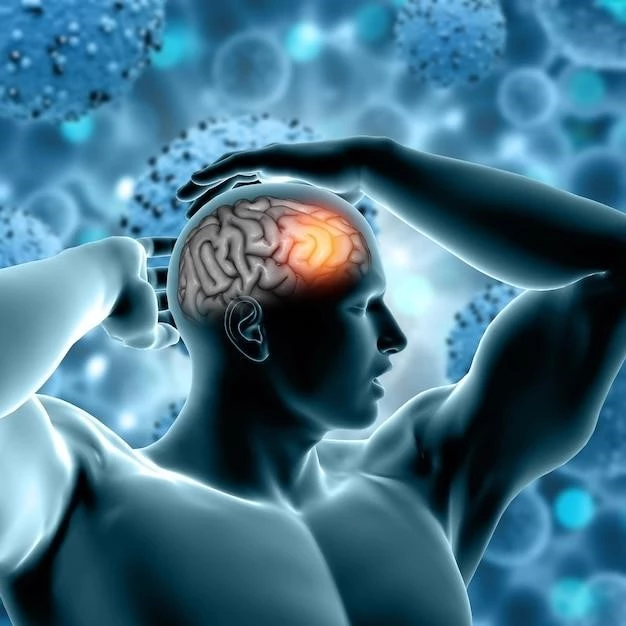Introduction
When it comes to the rare congenital condition known as Muscle-eye-brain syndrome, individuals are born with muscle weakness, severe nearsightedness, glaucoma, and brain abnormalities․ Learn more about this genetic disorder affecting muscles, eyes, and the brain․
Overview of Muscle-eye-brain Syndrome
Muscle-eye-brain syndrome, also known as muscular dystrophy-dystroglycanopathy congenital with brain and eye anomalies, is a rare genetic disorder characterized by muscle weakness, severe nearsightedness, glaucoma, and brain malformations․ It falls under the group of congenital muscular dystrophies and is typically present from birth․ This condition is associated with developmental delay, intellectual disabilities, and abnormalities in muscle, eye, and brain function․ Research continues to uncover more about this complex syndrome․

Causes and Symptoms
Genetically inherited, Muscle-eye-brain syndrome is characterized by muscle weakness, severe nearsightedness, glaucoma, and brain malformations․ Early diagnosis and treatment are key to managing symptoms and improving quality of life․ Seek medical advice for proper evaluation and personalized care․
Genetic Basis of Muscle-eye-brain Syndrome
Muscle-eye-brain syndrome, as a congenital disorder, has a genetic basis that involves mutations impacting muscle, eye, and brain development․ Understanding the underlying genetic factors is crucial for diagnosis and management of this complex syndrome․ Genetic testing and counseling play essential roles in assessing risks and providing personalized care for individuals with Muscle-eye-brain syndrome․
Common Symptoms of Muscle-eye-brain Syndrome
Individuals with Muscle-eye-brain syndrome commonly experience muscle weakness, severe nearsightedness, glaucoma, and brain malformations․ These symptoms can impact daily life and require a multidisciplinary approach for management and care․ Early recognition and intervention are crucial to address the complex challenges presented by this genetic disorder affecting muscles, eyes, and the brain․
Diagnosis and Testing
For individuals suspected of having Muscle-eye-brain syndrome, genetic testing and diagnostic procedures play a crucial role in confirming the condition․ Seeking specialized medical professionals for precise testing is essential to formulate appropriate management strategies․ Early diagnosis is key to addressing the genetic underpinnings of this complex syndrome effectively․
Genetic Testing for Muscle-eye-brain Syndrome
When it comes to Muscle-eye-brain syndrome, genetic testing is a vital component of diagnosis․ Detecting specific mutations that affect muscle, eye, and brain development is crucial in understanding the condition․ Collaborating with healthcare providers experienced in genetic testing can provide personalized insights for individuals with Muscle-eye-brain syndrome․
Diagnostic Procedures for Muscle-eye-brain Syndrome
Medical professionals often utilize a combination of genetic testing, imaging studies, and clinical evaluations to diagnose Muscle-eye-brain syndrome accurately․ These diagnostic procedures are essential to understand the extent of muscle weakness, visual impairments, and brain abnormalities, guiding healthcare providers in crafting tailored treatment plans for individuals affected by this complex genetic disorder․
Treatment Options
Managing Muscle-eye-brain syndrome involves a multidisciplinary approach․ Treatment strategies aim to address muscle weakness, visual impairments, and brain abnormalities․ Therapies and interventions such as physical therapy, vision aids, and cognitive support can help enhance quality of life for individuals with this genetic disorder․ Collaboration with healthcare professionals specializing in rare genetic conditions is crucial for comprehensive care․
Management Strategies for Muscle-eye-brain Syndrome
Developing comprehensive management strategies is essential for individuals with Muscle-eye-brain syndrome to address muscle weakness, visual impairments, and brain malformations effectively․ Collaborating with a diverse team of specialists, including geneticists, neurologists, ophthalmologists, and therapists, can help tailor interventions to suit the specific needs of each individual․ Implementing a personalized care plan can improve quality of life and overall well-being for those living with this complex genetic disorder․
Therapies and Interventions for Muscle-eye-brain Syndrome
Individuals with Muscle-eye-brain syndrome may benefit from various therapies and interventions to address muscle weakness, visual impairments, and brain abnormalities․ These may include physical therapy to improve muscle function, visual aids to aid in vision, and cognitive interventions to support brain development․ Collaborating with healthcare professionals can help in implementing effective strategies to manage the symptoms associated with this genetic disorder․
Prognosis and Complications
Understanding the long-term outlook and potential complications of Muscle-eye-brain syndrome is crucial․ Individuals with this genetic disorder may face challenges related to muscle weakness, visual impairments, and brain abnormalities․ However, with early diagnosis and appropriate management, the prognosis can be improved, and complications mitigated․ Regular follow-ups with healthcare providers are essential to monitor and address any emerging issues effectively․
Long-term Outlook for Individuals with Muscle-eye-brain Syndrome
For individuals diagnosed with Muscle-eye-brain syndrome, understanding the long-term prognosis is essential․ While the condition presents challenges such as muscle weakness, visual impairments, and brain abnormalities, early intervention and comprehensive management can positively impact the quality of life․ Regular monitoring and personalized care can help individuals with this genetic disorder navigate potential complications and optimize their overall well-being․
Potential Complications of Muscle-eye-brain Syndrome
Individuals with Muscle-eye-brain syndrome may face complications related to muscle weakness, visual impairments, and brain malformations․ These challenges can impact daily functioning and quality of life, emphasizing the importance of early intervention and personalized care․ Collaborating with a healthcare team knowledgeable about rare genetic disorders can help manage complications effectively and enhance overall well-being for individuals affected by this complex syndrome․

Research and Developments
Ongoing studies continue to delve into the intricacies of Muscle-eye-brain syndrome, exploring genetic mutations, treatment strategies, and potential breakthroughs in understanding this genetic disorder affecting muscles, eyes, and the brain․ Stay informed about the latest advancements in research to better grasp the complexities of this rare syndrome and its management․
Ongoing Studies on Muscle-eye-brain Syndrome
Continuing research on Muscle-eye-brain syndrome aims to delve deeper into genetic mutations, potential therapy options, and advancements in understanding this complex genetic disorder․ Stay abreast of ongoing studies to contribute to the evolving knowledge of this syndrome and its management․ Collaboration with healthcare professionals involved in research can provide valuable insights for individuals affected by Muscle-eye-brain syndrome․
Advancements in Understanding Muscle-eye-brain Syndrome
Research continues to advance our comprehension of Muscle-eye-brain syndrome, shedding light on genetic mutations, treatment modalities, and the underlying mechanisms of this intricate genetic disorder affecting muscles, eyes, and the brain․ Keeping abreast of these advancements can aid in gaining a deeper understanding of the syndrome and its management․ Collaboration with healthcare providers specializing in rare genetic conditions is essential for staying informed about the latest developments and potential breakthroughs․
